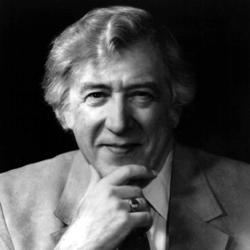TROMBONE HALL OF FAME No. 48 — Harry Raderman
 |
| Harry Raderman |
LAUGH and the world laughs with you." Gentlemen, here he is —Harry Raderman, the originator of the trombone laugh which has caused the entire trombone world, as well as all music lovers, to laugh with him.
In the evolution of the history of trombone playing, it seems to me no more than fair that the readers of this paper should know something about the men who are responsible for popular ideas and novelties which have brought the slide trombone prominently into public notice during the past few years. Radical changes have taken place in nearly every department of endeavor in the world of today, and this is particularly true with music. The rising generation seems to delight in popular strains and bizarre effects. Dancing, for instance, has changed considerably. A few years ago there were no fox-trots, or so-called one-steps, and this change in the style of dances has automatically brought about a change in the accompanying music — so much so, that the instrumentation for the up-to-date dance orchestra would look like Greek to the boys of a few years past. The professional leader who reaps a large financial harvest today has been keen to this fact. He also has evolved in pace with the popular tastes, and has tried out different combinations and adopted those which seemed most novel and pleasing to the majority.
Thus it holds that, if a man has made himself popular throughout the land by creating some new idea for which he alone is sponsor and has succeeded in launching it successfully before a discriminating public, he is entitled to all the praise we can possibly arouse in our modest little column here at least, so let us hope that these few words of appreciation will be an incentive to others to get out and become pioneers. Originality is the slogan. Strive for it, trombone players. You have a great field now when your instrument is so popular.
Harry Raderman was born in Russia, and is a member of one of the largest musical families in that country, as all of his relatives were gifted with musical talent and spirit. Raderman is a self-made man, however, and I doubt if his success is due to any inherited musical ability. The wonderful popularity and financial returns he now enjoys came undoubtedly from his initiative faculties, coupled of course with hard work and the surmounting of technical problems incidental to the mastery of his instrument, for be it understood that no one can properly execute "stunts" on an instrument unless he has first mastered the technic of said instrument.
Mr. Raderman began his studies in Odessa, Russia, and was just ten years of age when he arrived in the United States. Upon his arrival in this country his ambition was kindled. He studied hard and played around New York with most of the leading bands and orchestras, and also in the different theatres. It was while playing in one of New York's popular vaudeville theatres, namely, the Bushwick Theatre in Brooklyn, that I first became acquainted with Mr. Raderman. At that time Andrew Byrnes was conducting the music at this theatre, and his orchestra had won first place in the hearts of the patrons — mainly through the rendition of special overtures, solos and novel features between the acts and during the intermission. Harry Raderman's brain was thereby stirred into activity; he noted the numbers which delighted the people, and his thoughts were continually focused upon a plan to invent some new device to tickle the ears of the novelty-loving public.
At about this period along came the change in dance music. Dancing had become a popular institution to such an extent that space was set aside in cafes and restaurants for this special purpose. The style of dancing became entirely different, and the present ever popular foxtrot and one-step rushed into vogue. Orchestrations to follow this new fad were arranged by the numerous publishers, and each tried to outdo the other in the employment of novel effects. Mutes for trombones and cornets were introduced.
One of the most popular and largest restaurants in New York City, known as Rector's at Broadway and 48th Street, engaged the wellknown Ted Lewis for a drawing card at an extraordinary salary, and featured him as a wizard at providing music suited to the popular taste for dancing. Mr. Lewis instituted a search for a clever trombone player, and here Raderman saw his opportunity. The engagement was tendered him and he accepted it. Harry was noted for his goodly supply of optimism and it was right with him at this time, for in a number called "Smiles" Harry not only smiled, but this melody proved the incentive to the creation of the trombone laugh which proved to be the making of Harry Raderman. Crowds were attracted to Rector's through hearing the enthusiastic compliments of the many patrons regarding the excellent dance music, and Ted Lewis soon became the talk of the town — Raderman being included, and with especial credit given him among musicians who could appreciate his originality.
After an association of a year or more with Mr. Lewis, Raderman was engaged to make exclusive records with Joseph C. Smith and his orchestra. His popularity became so great that about two years ago he prevailed upon to organize his own novelty orchestra, known as Harry Raderman's Orchestra and which is now one of the popular features on most of the phonograph records. Thus optimism with Raderman not only blossomed into a laugh, but it has also brought him a well earned financial success.
Here are a couple of Harry Raderman's recordings from the 1920s.
"Do It Again" from 1922.
"Make That Trombone Laugh"







